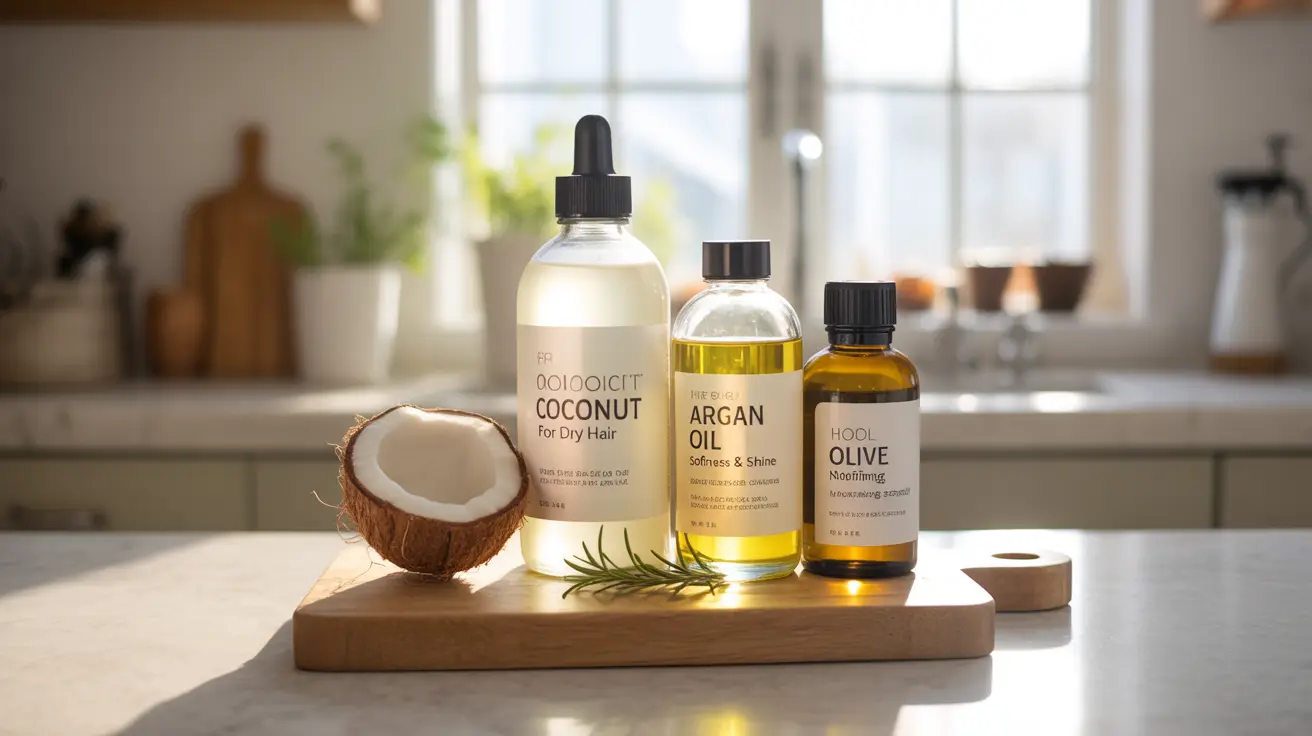Dealing with dry, brittle hair can be frustrating, but incorporating the right natural oils into your hair care routine can make a significant difference. Understanding which oils work best for dry hair and how to use them effectively can help restore moisture, shine, and overall hair health.
In this comprehensive guide, we'll explore the most beneficial oils for treating dry hair, their specific advantages, and how to apply them safely for optimal results.
Top Natural Oils for Dry Hair Treatment
Coconut Oil: The Ultimate Hair Hydrator
Coconut oil stands out as one of the most effective treatments for dry hair. Its molecular structure allows it to penetrate the hair shaft deeply, providing intense moisture and preventing protein loss. This oil is particularly beneficial for:
- Reducing frizz and flyaways
- Preventing split ends
- Protecting hair from environmental damage
- Promoting scalp health
Argan Oil: The Liquid Gold for Hair
Known as "liquid gold," argan oil is rich in vitamin E and fatty acids that provide exceptional benefits for dry hair:
- Deep moisturizing properties
- Protection against heat damage
- Enhanced shine and manageability
- Reduced breakage and split ends
Olive Oil: A Kitchen Staple for Hair Care
This common household oil offers remarkable benefits for dry hair:
- Deep conditioning properties
- Scalp nourishment
- Protection against heat damage
- Enhanced hair elasticity
How to Apply Hair Oils Effectively
Pre-Shampoo Treatment
Apply oil to dry hair 30-60 minutes before washing:
- Section hair into manageable parts
- Apply oil from roots to tips
- Gently massage the scalp
- Cover with a shower cap for better penetration
Overnight Treatment
For intensive moisturizing:
- Apply oil to clean, slightly damp hair
- Focus on ends and mid-lengths
- Protect your pillow with a towel
- Wash hair thoroughly in the morning
Essential Oils for Enhanced Benefits
Combining carrier oils with essential oils can provide additional benefits for dry hair:
- Lavender oil for scalp health
- Rosemary oil for circulation
- Tea tree oil for dandruff control
- Peppermint oil for scalp stimulation
Safety Considerations and Best Practices
Before using any new oil treatment:
- Perform a patch test to check for allergies
- Start with small amounts to assess your hair's response
- Use high-quality, pure oils
- Avoid applying too much oil, which can weigh down hair
Frequently Asked Questions
What are the best natural oils to use for treating dry hair?
The most effective natural oils for dry hair include coconut oil, argan oil, olive oil, and jojoba oil. Each offers unique benefits, with coconut oil being particularly effective for deep moisture and protein retention.
How do coconut oil, olive oil, and avocado oil help with dry and damaged hair?
These oils help by penetrating the hair shaft, providing deep moisture, protecting against protein loss, and creating a protective barrier against environmental damage. Coconut oil penetrates deeply, olive oil conditions effectively, and avocado oil provides intensive moisture and nutrients.
Can essential oils like lavender or tea tree oil improve scalp health and hydrate dry hair?
Yes, essential oils can benefit dry hair when properly diluted with carrier oils. Lavender oil helps balance scalp oil production, while tea tree oil has antimicrobial properties that promote scalp health. However, they should never be used undiluted.
How should I apply oils to dry hair for the best moisturizing effects?
Apply oils to dry or slightly damp hair, focusing on the mid-lengths and ends. For best results, warm the oil slightly, section your hair, and apply evenly. Leave it on for at least 30 minutes or overnight before washing.
Are there any risks or allergies to watch out for when using oils on dry hair?
Always perform a patch test before using any new oil. Some people may experience scalp irritation or allergic reactions. Start with small amounts and discontinue use if you experience any adverse reactions. Those with nut allergies should avoid oils derived from nuts.




